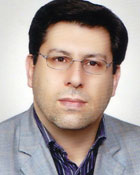Review of Contemporary Business Research, 2(1), pp. 41-55.
Abstract
Mineral water is among the products that have important roles in human health; therefore, its consumption is increasing every day. In this paper, the degree of importance of consumers to the quality of mineral water is compared in Tehran for different groups of people in terms of the area, location, education and occupation. The results show that overall quality of mineral water is very important for people with higher education and the higher level of life. We investigated the relationship between independent variables including age, number of household members, education, and education of the head household shopping and the dependent variable, amount of the consumption of mineral water, in Tehran through a logarithmic regression equation. The results showed there is a direct relationship between the consumption of mineral water, education variables and the educational level of people who are responsible for purchasing, but there is a reverse relationship between the number of household members and the amount of mineral water consumption.
Full Text: PDF
Fattahi, Shahram., Alipourfard, Somayeh., & Habibi, Hana. (2013). Analysis of Determinants of Mineral Water Consumption: The Case of Tehran. Review of Contemporary Business Research, 2(1), pp. 41-55.
Tajrishi M & Abrishamchi A (2004). Demand management of water resources in country.Prevention of waste of national resources, School of Civil Engineering, Sharif University of Technology.
Khodadadi M, Eudi GH, Hadigheh D, Azizi M (2006), Evaluation of microbial and chemical and bottled mineral water supplied in Birjand", 10th National Conference on Environmental Health
Ebrahimzadeh J (2003). Mineral water springs and spatial extent of its in Iran. Water Resources Research in Iran. Third year, No 2, pp. 66-70.
Ghiyasvand J (2010), Vail Noosh Mineral Water Company. Iran's economic newspaper
Han.SB, Chen SK, Ebrahimpour M, & Sodhi. MS (2001), A Conceptual QFD planning model, International Journal of quality and reliability management. Vol 18,number 8, pp. 796-812.
Grondin J, Levallois P, Moret S, & Gingras S (1996) The influence of demographics risk perception, knowledge, and organoleptics on water consumption patterns. Proceedings of the AWWA Annual Conference: Management and Regulation A.AWWA, Denver, pp. 537-546.
Levallois P, Grondin J & Gingras S (1999), Evaluation of consumer attitudes on taste and tap water alternatives in Quebec. Wat. Sic. Technol. 40(6), pp 135-139.

Shahram Fattahi is an assistant professor at Razi University where he was formerly Chair of the Economics Department and also was Associate Dean for Academic & Research Affaires at Faculty of Social Sciences. Having worked at the Department of Planning for three years, Fattahi Author has provided consulting services to the Iranian Ministry of Jahad Keshavarzi.
At Allameh Tabatabaee University, he earned M.A in Economic Planning and Development. In 2001, he was awarded the Ph.D. scholarship for doctoral studies by the Iranian Ministry of Science, Research and Technology, and received his doctorate in Economics from Martin Luther Halle-Wittenberg University. During his graduate studies in Germany, he worked at the Department of Statistics and Econometrics.
His research interests lie at the applied econometrics. A graduate in Economics Science, he lectures on Econometrics courses at Razi University. Fattahi has written many articles that were published in Iranian and International journals. Recent honors include distinguished professor (in research and also in teaching) at Razi University in 2011 and 2012.
E-mail: [email protected]
Tel: +98(831)8359036-8. Fax: +98(831)8362471.
Somayeh Alipourfard
Razi University
Hana Habibi
University Putra Malaysia
Browse Journals
Journal Policies
Information
Useful Links
- Call for Papers
- Submit Your Paper
- Publish in Your Native Language
- Subscribe the Journal
- Frequently Asked Questions
- Contact the Executive Editor
- Recommend this Journal to Librarian
- View the Current Issue
- View the Previous Issues
- Recommend this Journal to Friends
- Recommend a Special Issue
- Comment on the Journal
- Publish the Conference Proceedings
Latest Activities
Resources
Visiting Status
| 371 | |
| |
993 |
| |
8314 |
| |
9137 |
| 1148252 | |
| 60 |
 The Brooklyn Research and Publishing Institute
The Brooklyn Research and Publishing Institute